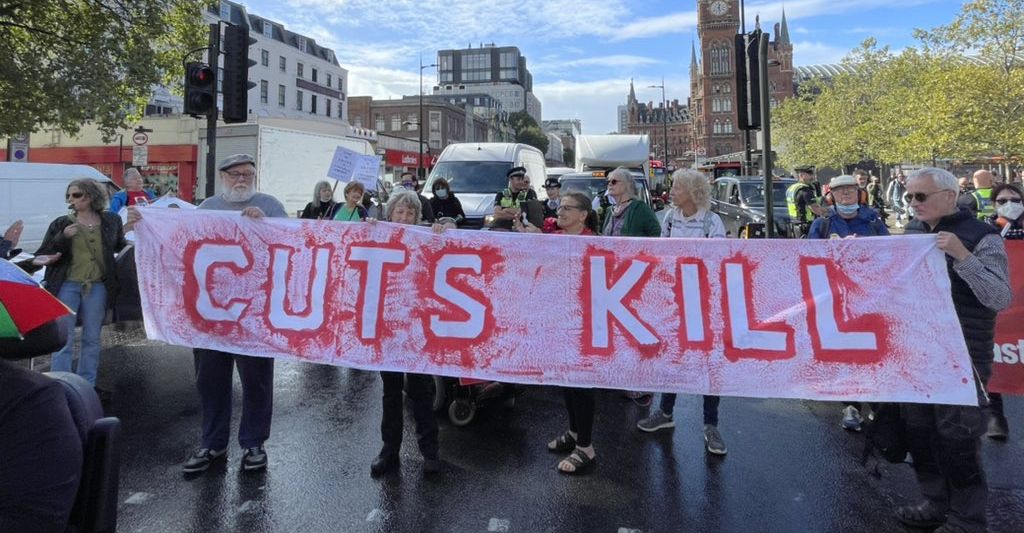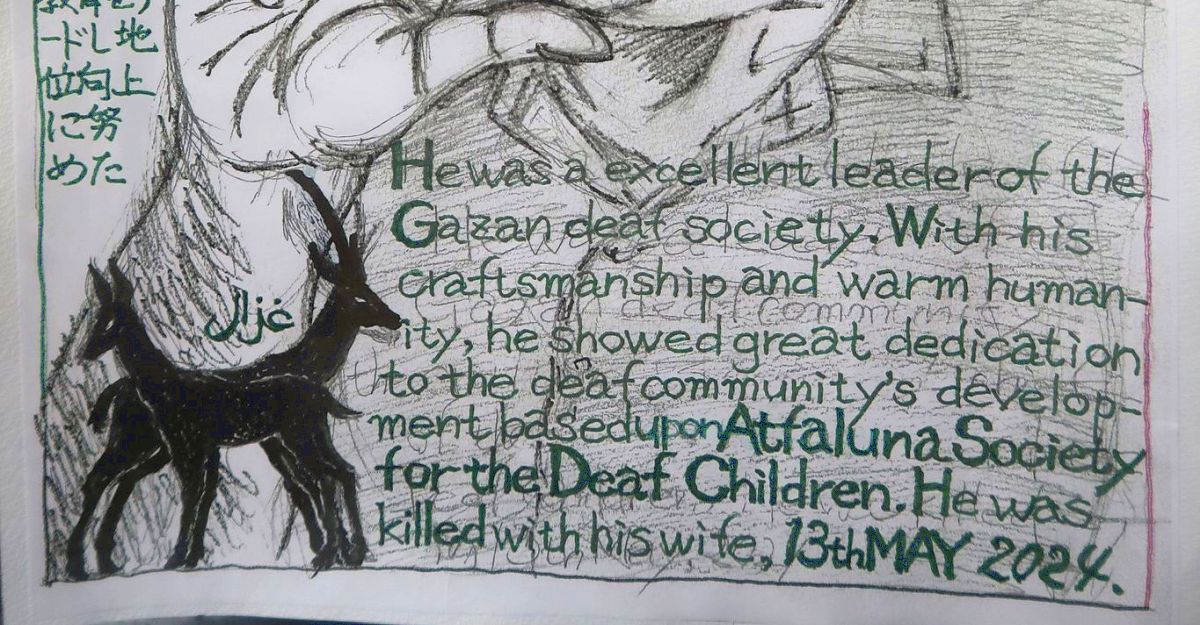It’s no secret that disabled people, and the workers and organisations who support us to live well, are systematically devalued under capitalism.
Over the past couple of decades, disabled people in much of the Western world have often sought, or agreed to, more individualised funding schemes in order to gain greater “choice and control” over the support we receive. But the autonomy, dignity and flexibility we were promised seems constantly under threat or out of reach, largely because of the perception that allowing us such “luxuries” is too expensive.
Reorienting our economy to prioritise care does come with massive costs many would rather look away from. But fronting up to them is a core tenet of upholding human rights. Currently, in spite of the dominant rhetoric of affording disabled people good lives, the policies of the New Zealand and Australian governments have put financial savings ahead of the changes that could lift disabled people’s quality of life and give proper value to the labour of care and support work.
Australia’s National Disability Insurance scheme (NDIS), passed into legislation in 2013, is groundbreaking in many ways. It funds a range of individualised supports for more than 680,000 people with “significant and permanent” disabilities acquired before turning sixty-five.
In Aotearoa, the Accident Compensation Corporation (ACC) system, passed into law in the 1970s and largely funded by levies, was also groundbreaking for its time. It provides rehabilitation and income support to many people with disabilities arising from an injury or accident, and was meant to be extended over time to cover all disabled people — but never actually was. For other disabled people under sixty-five, individualised funding and other forms of Government-funded disability supports — like housing modifications and equipment services — are also available under a system called Disability Support Services (DSS), infamous for being far less well-funded than ACC. Finally, under various pilots and locally-based roll-outs, a more flexible approach to assessments and personal budgets emphasising self-determination and belonging to the community has been made available to some disabled people under sixty-five. This is known as the Government response to Enabling Good Lives, though nationwide roll-out has recently been paused.
However, even as we lament how these various schemes are getting more and more restricted, they were always falling short in significant ways. The genesis for this is the neoliberal notion that Karen Soldatic and Hannah Morgan have called “disability fiscal panic”. Under this “panic’, disabled people cost too much, and as such, supporting us ought to be predicated on our ability to contribute to the labour market. This logic also legitimises hierarchies of deservingness. In relation to disability support, or income support for that matter, these hierarchies are produced via strict eligibility criteria, and, usually, demeaning assessment processes.
In Aotearoa, many disabled people don’t qualify for Disability Support Services, which take an outdated diagnosis-based approach to eligibility. This excludes most people who are chronically ill or have chronic pain, have foetal alcohol spectrum disorder, epilepsy or Tourette’s, and many neurodivergent people for whom support would be helpful. Under ACC, many get stuck in lengthy eligibility disputes.
It’s a similar story in Australia, where over 85 per cent of disabled people are unable to qualify for NDIS support, and have been considerably marginalised by the disappearance of previously-available State-funded services. The scheme’s theoretical focus on “capacity building” has led to an expectation from Government that participants’ support needs should decrease over time. While this certainly has proved true for some, there are many people whose disabilities require consistent ongoing support.
Another serious limitation of current approaches is the lack of culturally responsive and safe supports. Over a quarter of the population in Aotearoa is Māori and/or Pasifika, and the Asian population is also very significant — yet support systems are largely designed by and for Pākehā. In Australia, scholars Mona Nikidehaghani, and Sanja Pupovac have looked at the experiences of First Nations people with disability and similarly found the NDIS to be colonial based on aspects like its individualistic budgeting approach, urban-centricness and lack of consideration for First Nations connection to Country.
Both Aotearoa and Australia also have discriminatory migration health standards that explicitly categorise people with disabilities and health conditions to be cost burdens when making visa decisions. So, even for those theoretically eligible to receive some support pre-residency, there is a strong incentive not to seek it.
In addition, the job of deinstitutionalisation was never actually finished in Australia or Aotearoa. In Aotearoa, people were moved out of large institutions in the 80s, 90s and early 2000s, but without adequate support to truly be included in communities. Most landed up living in residential services, many of which operate according to regimented routines and are hotbeds of abuse — two hallmarks of continued institutionalisation. This is also the case in Australia. Both countries have had recent Royal commissions recommend an end to institutionalising disabled people (Aotearoa, recommendation 70) or significantly safer and more inclusive housing approaches (Australia), but in both cases government action is lacking.
All this context is a rough summary of where things were a year ago.
In both countries, the last year has seen significant shifts entrenching the disabled-people-as-cost/burden narrative. On 18 March 2024, cutbacks to Aotearoa’s DSS system were announced out of the blue on social media. They introduced fiendishly narrow housing modifications and disability equipment priority criteria leaving everyone else on a waiting list of undetermined length. Funding for support workers to travel intercity was disallowed, disability-related purchases were constrained and respite options for family carers were severely curtailed.
In August, after a review whose exclusive focus appears to have been saving money with no sign of human rights or equity considerations, further unilaterally-decided surprises came. One was that DSS would move from its previous home in Whaikaha (the Ministry of disabled People) to the Ministry of Social development. This was a brutal change for many of Whaikaha’s disabled employees, who signed up on purpose to work at the disability ministry, and one that critically weakens the oversight disabled public servants have over that system.
Soon after, an especially grim policy document directed to needs assessment agencies came to light. Under the guise of financial sustainability, it detailed the systematic nature in which budgetary cutbacks would be enforced. These would make it harder to get into residential services and also to get support outside of them. Following these developments, the future of DSS was consulted on via a public but narrow process favouring those able to fill in a complex survey and now it’s being consulted on again, with workshops this time, but only interested in a much narrower set of questions. ACC, too, is currently subject to a number of reviews aiming to cut costs by “getting Kiwis rehabilitated and back to work and independence quickly” — otherwise known as rehabilitation and disability support only counting when in service of economic productivity.
Across the ditch, Australia’s Government is under constant attack from the opposition over the cost of the NDIS, and in an election year with a deficit budget on the horizon, the blows are landing. After a substantial independent review of the NDIS, the government passed a Bill framed around “getting the NDIS back on track” and achieving “financial sustainability”. It transpired that the government had previously commissioned research into what narrative might help the disabled community accept funding cuts, and this has influenced their talking points ever since.
The NDIS Review recommended a new needs assessment process to be co-designed with the sector, but recent leaks suggest that — given tight timeframes and strict limits on the topics up for discussion — our involvement in the process will be tokenistic at best. Meanwhile, thousands of participants have received letters requesting unspecified new evidence within tenty-eight days to prove they’re still eligible for support. Alarming as all this seems, a change of government would likely be no improvement. Opposition leader Peter Dutton has suggested that cutting back the NDIS could help fund Australia’s $386 billion submarine programme. For the many people with disability outside the NDIS, a strategy for the tier of disability supports funded outright now known as foundational supports has to be created, but there is much uncertainty about what will and won’t be covered and how transitional arrangements will work.
Uncertainty is a constant theme in both countries, as is the trading in of disabled people and our families’ human rights and dignity for whatever dollar values the governments decide to assign to our communities. We have had to accept that the underlying tenets of neoliberalism do not disappear under left-leaning governments, either, even if their cuts may be less deep or sudden and their rhetoric more appeasing.
On the ground, however, the value of disability support isn’t just felt by recipients. In Australia, the 270,000 people employed as a result of the NDIS are as determined to protect it as disabled people are. It appears as though, watching from afar, the New Zealand Government has learned the wrong lessons, and like many Australians, it has become preoccupied by the costs rather than the benefits of doing the right thing. Privatising the entire system and leaving it to the market inherently risks deregulated services, price gouging and unequal availability. It is not necessarily a more cost-effective route, either.
The change needed to prioritise jobs that care and nurture in our societies is monumental. But none of the financial trade-offs we’re faced with are inevitable — especially not if governments got serious about revenue-generating options like a wealth tax or sovereign wealth fund.
A final reflection: there can, and we believe should be, a duty on disability activists who have the knowledge to do so to take care not to conflate our need for greater flexibility of support with green-lighting individualistic and fully privatised support models. Governments know how to usurp that ambiguity to lend legitimacy to their neoliberal restructuring at the expenses of those on the fringes of support. Disabled people are strong when we call out government cost-cutting and community-sidestepping for what it is: an ableist position that denies our rights and valorises their lives over ours.
Image: a banner reading “Cuts kill”, from a rally against disability support cuts in the UK



